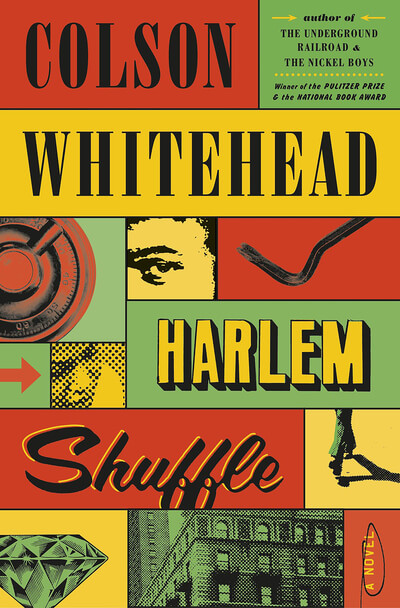Somewhere near the end of Colson Whitehead’s tragicomic Harlem Shuffle, I found myself giggling in spite of myself. What was happening on the page was horrible, but it was hilarious. It was hilarious in the way that the comeuppance of the white supremacist clowns at the end of “Breaking Bad” was hilarious. The clowns in Whitehead’s story probably didn’t deserve their fate quite as much, but when they underestimated who they were dealing with, their fate was sort of sealed.
Indeed, like “Breaking Bad” and “The Wire,” Harlem Shuffle acknowledges a sense of morality and an ethical code that may be strange to those of us who aren’t crooks or cynics. Whitehead’s Ray Carney is one of those rare people who can walk the line between crooked and straight and live to tell the tale. By day, he’s a genial Harlem furniture salesman. By night, now and then, he fences “gently used items.” He is a genuinely devoted family man, not just to his smart, sensible wife and adorable kids but also to his cousin and childhood bestie, Freddie. Everyone knows a Freddie. He’s the perennial problem; he’s the one who gets you into the trouble you can’t even imagine. Yet you can’t quit Freddie, because he’s charming and he’s handsome and he’s stupid, and most of all, he’s blood.
Like Dante leading us through the levels of hell, Whitehead presents the reader with the levels of rottenness in early to mid-1960s New York City. There are heists and stickups and beat downs, as well as the hypocrisy of the Black upper crust who think Carney is too dark-skinned to join their club. There’s the tiresome regularity of racist police violence and the protection money paid to the cops and local hoods with lovely monikers like Miami Joe, Cheap Brucie, Yea Big and Louie the Turtle. Downtown, the rottenness is carried out in pristine office towers built by rich white folks who own not only the buildings but also the machinery of the city itself. Carney gets caught up in all of it thanks to a smidgeon of criminal DNA he inherited from his dad and, inevitably, Freddie’s fecklessness.
At the end we see the chasm from which the World Trade Center’s twin towers will rise, the fruit of a deal between more compromised New York mucky mucks. Sic transit gloria mundi, says the author. Thus passes worldly glory. Harlem Shuffle is yet another Colson Whitehead masterpiece.




